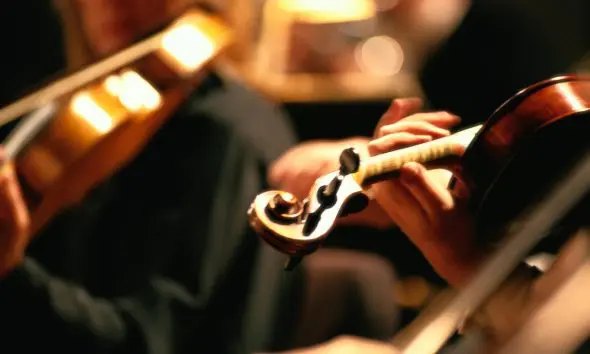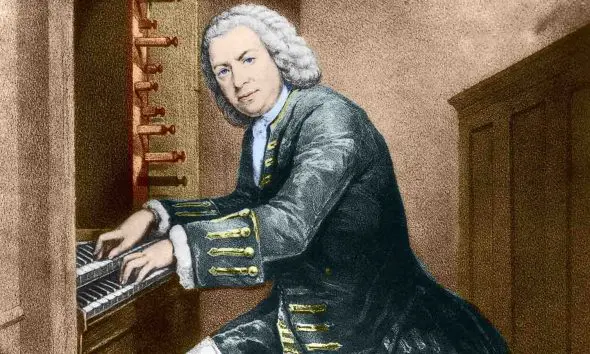Discover Niu Niu’s Album ‘Fate & Hope’: Out Now
Niu Niu spoke to us about the inspiration behind his new album ‘Fate & Hope’ featuring Liszt’s piano transcription of Beethoven’s iconic Fifth Symphony.

“We might feel that our lives are determined, but as long as we hope, we will always believe in a better tomorrow,” says Niu Niu, speaking about the inspiration behind his new album Fate & Hope. The recording includes Liszt’s extraordinary solo piano transcription of Beethoven’s iconic Fifth Symphony as well as his debut composition Hope. Niu Niu explains, “As a young musician more than 200 years after Beethoven, I am trying to convey the idea that his energy, his legacy and his spirit always will live in us. It is really paying a tribute to Beethoven, just as I felt Liszt wrote his transcription of the Fifth Symphony as a tribute to Beethoven.”
Listen to Niu Niu’s album Fate & Hope on Apple Music and Spotify and scroll down to discover the story behind the recording.
Discover Niu Niu’s album Fate & Hope
Composers have long admired bird song. Handel copied their melodies in an organ concerto, dubbed The Cuckoo and the Nightingale. Respighi represented several feathered friends in The Birds, while Messiaen chronicled the calls he heard in his native France. Zoomusicologists – musicologists who specialise in animal music – have persuasively made a case that bird song is an art form in itself. In fact, it’s likely that the one of the most famous motifs in musical history was inspired by the percussive call of the Yellowhammer.
Beethoven’s Symphony No. 5
The four-note ‘dadadadaaaaaaaa’ that opens Beethoven’s Symphony No. 5 corresponds with the cry of the brightly coloured bird the composer heard as he walked through Vienna’s park. The iconic phrase, transcribed as three quavers followed by a paused minim, has been quoted ever since – including in some unlikely places, such as Saturday Night Fever (‘A Fifth of Beethoven’). There are many different versions of the original symphony, including transcriptions for piano.
“I have to be the orchestra and the soloist at the same time”
“I have to be the orchestra and the soloist at the same time,” says Chinese pianist Niu Niu, who has included Liszt’s transcription on his new solo album Fate & Hope. “Everyone knows the opening to Beethoven’s Fifth – it was really important to get that bit right.”
Piano transcriptions were a popular medium in the 19th and early 20th century. They were used to recreate music before commercial recordings were widely available and when more people played the piano at home. As the technical capabilities of the instrument itself improved, so did those of the pianists – transcriptions became increasingly complex. Liszt – one the first celebrity pianists – was particularly brilliant at the art of transcription, reworking dozens of songs, operas and symphonies. The Beethoven-Liszt Op. 67 is not merely an arrangement; Liszt has integrated all the elements in the original orchestration and transferred them into a work for piano that is a piece in its own right. There’s a reason this transcription isn’t heard very often: it’s extremely difficult to play.
“Liszt really squeezed the potential of the piano,” agrees Niu Niu. “It’s intimate but also powerful. This is a very technically complex piece, but I hope that people don’t hear that and can fully immerse themselves in the music.”
“I started writing Hope at the beginning of the pandemic”
Legend has it that the ‘dadadadaaaaaaaa’ emblem represents fate knocking on the door – a tantalising tale, given the personal tragedy surrounding Beethoven’s life. Niu Niu’s album, Fate & Hope, takes half its title from this story; the other half refers to a piece written by the 23-year-old himself. “I started writing Hope at the beginning of the pandemic,” he explains, “It took several months, and in time I learned that eliminating was as important as elaborating.” Carving away the excess left a compact, five-minute impromptu. “I feel more free playing my own music – although Hope is carefully composed and there is an emotional flow, there is an improvised quality to it. That is something I like to emphasise and I admire that quality in Liszt and Chopin.”
Niu Niu was a prodigy
Niu Niu was born in 1997 in the Chinese city of Xiamen, near Taiwan. His parents gave him the nickname ‘Niu’ to shorten his given name, Zhang Shengliang. (‘Niu’ is the phonetic spelling of the Chinese word for ox; 1997 was the year of the ox.) It became obvious from an early stage that Niu Niu was a prodigy, although he says that his parents always protected him from that label. He enrolled into the Shanghai Conservatory of Music aged eight, the youngest student to have ever joined the prestigious institution, and later studied at the New England Conservatory and The Juilliard School.
Fate & Hope is Niu Niu’s second album for Decca, following a recital of Liszt, Chopin, Schubert and Mendelssohn (2018). But the pianist is no stranger to the recording process, having signed to EMI Classics when he was just nine. This is his first Beethoven collection, a composer from whom Niu Niu learned the idea of discipline: “I don’t mean rules to follow, but the control we should have. That plays a really important role in my practice and playing.”
Two Beethoven sonatas are sandwiched between the symphony and Hope. The Pathétique (No. 8 in C minor, Op. 13) is one of the earlier sonatas, written when Beethoven was just a few years older than Niu Niu. It’s packed with beautiful melodies, earning the nickname Pathétique – ‘moving’. The Moonlight (No. 14 in C sharp minor, Op. 27/2) is so-called after a critic compared the rippling themes in the first movement to a moon-lit Lake Lucerne. In fact, the sonata was probably inspired by Beethoven’s relationship with his student, 16-year-old Countess Giulietta Guicciardi, to whom the work is dedicated.
Fate and hope: two opposing, powerful ideals. “We might feel that our lives are determined,” says Niu Niu, “but as long as we hope, we will always believe in a better tomorrow.”
Niu Niu’s album Fate & Hope can be bought here.
Do you want to be the first to hear the latest news from the classical world? Follow uDiscover Classical on Facebook and Twitter.






